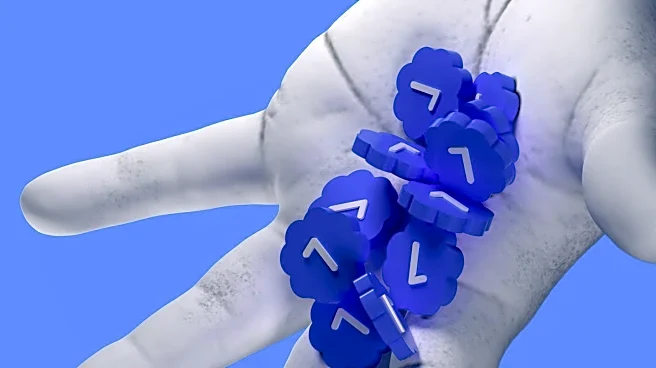What's Happening?
Biohope, a Spanish company specializing in personalized medicine solutions for transplant and autoimmune patients, has entered into a collaboration with Mayo Clinic to advance the development and commercialization
of the Immunobiogram. This in vitro diagnostic device, patented in the U.S. and other territories, aims to optimize immunosuppression therapy for transplant patients. The agreement allows Biohope access to Mayo Clinic's specialized know-how, enhancing the clinical validation of the Immunobiogram in the U.S. The technology is designed to provide personalized diagnostic insights, potentially reducing rejection rates and infections, while improving graft survival and patient-reported outcomes. Biohope's CEO, Isabel Portero, expressed enthusiasm for the collaboration, highlighting its potential to transform personalized immunosuppression management for transplant patients.
Why It's Important?
The collaboration between Biohope and Mayo Clinic is significant as it could lead to improved outcomes for transplant patients through personalized medicine. By optimizing immunosuppression therapy, the Immunobiogram technology has the potential to reduce complications such as rejection and infections, which are critical concerns in transplant medicine. This partnership also underscores the importance of personalized diagnostic tools in enhancing patient care and quality of life. The involvement of Mayo Clinic, a leader in medical research and patient care, adds credibility and expertise to the initiative, potentially accelerating the technology's clinical validation and market entry in the U.S.
What's Next?
The collaboration is expected to focus on the clinical validation of the Immunobiogram technology in the U.S., leveraging Mayo Clinic's expertise in transplant medicine. As the technology progresses, it may lead to broader adoption in clinical settings, offering a transformative tool for personalized immunosuppression management. Stakeholders, including healthcare providers and patients, may anticipate improved transplant outcomes and reduced healthcare costs associated with complications. The partnership may also pave the way for further innovations in personalized medicine, potentially influencing future research and development in the field.
Beyond the Headlines
The collaboration highlights the growing trend of personalized medicine in healthcare, emphasizing the need for tailored approaches to treatment. Ethical considerations may arise regarding the accessibility and affordability of such advanced diagnostic tools, particularly in diverse healthcare systems. Additionally, the partnership may stimulate discussions on the integration of personalized medicine into standard care practices, potentially influencing policy and regulatory frameworks.









